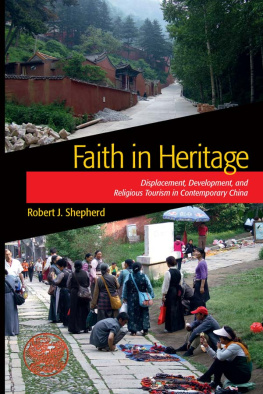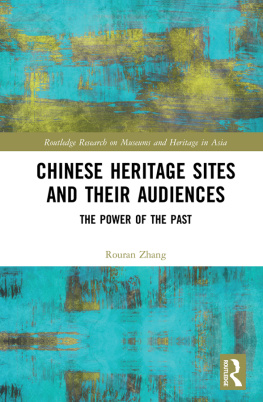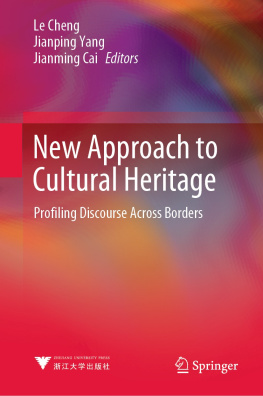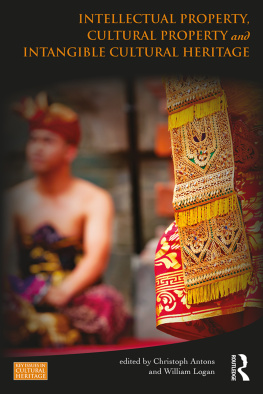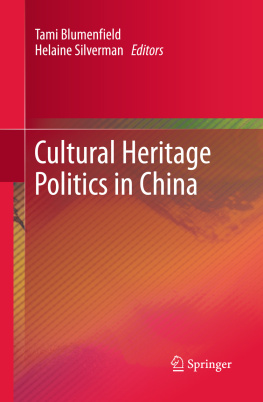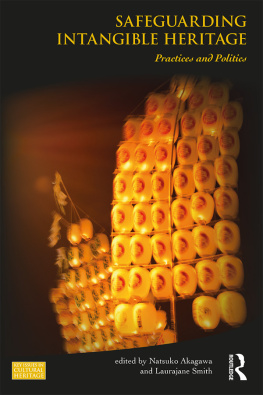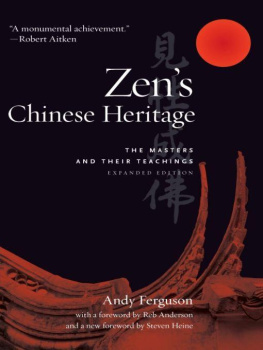
Heritage Politics in China
Heritage Politics in China: The Power of the Past studies the impact of heritage policies and discourses on the Chinese state and Chinese society. It sheds light on the way Chinese heritage policies have transformed the narratives and cultural practices of the past to serve the interests of the present.
As well as reinforcing a collective social identity, heritage in China has served as an instrument of governance and regulation at home and a tool to generate soft power abroad. Drawing on a critical analysis of heritage policies and laws, empirical case studies and interviews with policymakers, practitioners, and local communities, the authors offer a comprehensive perspective on the role that cultural heritage plays in Chinese politics and policy. They argue that heritage-making appropriates international, national, and local values, thereby transforming it into a public good suitable for commercial exploitation. By framing heritage as a site of cooperation, contestation, and negotiation, this book contributes to our understanding of the complex nature of heritage in the rapidly shifting landscape of contemporary China.
Heritage Politics in China: The Power of the Past is essential reading for academics, researchers and students in the fields of heritage studies, cultural studies, Asian studies, anthropology, tourism and politics.
Yujie Zhu is Senior Lecturer at the Centre for Heritage and Museum Studies, the Australian National University. He is the author of Heritage and Romantic Consumption in China and the co-editor of Politics of Scale: New Directions in Critical Heritage Studies.
Christina Maags is Lecturer in Chinese Politics at the Politics Department at the School of Oriental and African Studies (SOAS), University of London. Christinas research interests focus on the politics around cultural heritage in the Peoples Republic of China.
Routledge Research on Museums and Heritage in Asia
Heritage Politics in China
The Power of the Past
Yujie Zhu and Christina Maags
For more information on this series, please visit: www.routledge.com/Routledge-Research-on-Museums-and-Heritage-in-Asia/book-series/RRMHA
Heritage Politics in China
The Power of the Past
Yujie Zhu and Christina Maags
First published 2020
by Routledge
2 Park Square, Milton Park, Abingdon, Oxon OX14 4RN
and by Routledge
52 Vanderbilt Avenue, New York, NY 10017
Routledge is an imprint of the Taylor & Francis Group, an informa business
2020 Yujie Zhu and Christina Maags
The right of Yujie Zhu and Christina Maags to be identified as authors of this work has been asserted by them in accordance with sections 77 and 78 of the Copyright, Designs and Patents Act 1988.
All rights reserved. No part of this book may be reprinted or reproduced or utilised in any form or by any electronic, mechanical, or other means, now known or hereafter invented, including photocopying and recording, or in any information storage or retrieval system, without permission in writing from the publishers.
Trademark notice: Product or corporate names may be trademarks or registered trademarks, and are used only for identification and explanation without intent to infringe.
British Library Cataloguing-in-Publication Data
A catalogue record for this book is available from the British Library
Library of Congress Cataloging-in-Publication Data
A catalog record has been requested for this book
ISBN: 978-1-138-33270-6 (hbk)
ISBN: 978-0-429-44642-9 (ebk)
Typeset in Bembo
by Newgen Publishing UK
Contents
This book resulted from the collaboration between two authors, who both share a passion for studying cultural heritage in China. This study is the product of the many journeys they have undertaken in China. Writing a book together has been a very creative, fruitful, and at times challenging experience. First and foremost, they would therefore like to thank each other for the trust, hard work, and friendship along this journey. Yujie is especially grateful to Christina who, during the last stage of manuscript writing, travelled to Canberra to finalise the book manuscript.
Both authors would like to thank the editorial team of the Routledge Museums and Heritage Studies series, especially Heidi Lowther and Kangan Gupta, for their diligent and timely editorial support on the manuscript. It has been a pleasure working with them.
We would like to thank selected research institutions for their generous financial support and assistance in putting this book together. Yujie would firstly like to express his gratitude to the ANU Humanities Research Centre Fellowship. For the research grants, Yujie would like to particularly thank the Australian Academy of Humanities, the ANU College of Arts and Social Sciences, Australian Centre on China in the World, and the Research School of Humanities and the Arts. Without their support this research would not have been possible. He would also like to use this opportunity to thank his colleagues from the Centre for Heritage and Museum Studies, especially Laurajane Smith, Paul Pickering, and Howard Morphy. Christina is grateful for the support of the Politics Department at the School of Oriental and African Studies (SOAS), University of London, who have supported this project through fieldwork monies and travel grants, enabling this successful collaboration between the UK and Australia. Christina would also like to thank the members of the research project Protecting the Weak: Framing, Mobilization and Institutionalization at the University of Frankfurt (20142017), particularly Heike Holbig who has continuously provided guidance and advice during the early years of her research. This research project was generously funded by the Volkswagen Foundation, who provided financial support to conduct part of the fieldwork used in this manuscript.
Scholarship is an ongoing process, which hugely benefits from the feedback and advice of fellow researchers. For the invitation to present earlier versions of this work, Yujie thanks the Department of Anthropology, University of California at Berkeley (2015), the East Asian Program at Cornell University (2016), the Department of Tourism at the University of Otago, New Zealand (2017), the Asia Research Institute, National University Singapore (2018), and the Institute of Advanced Studies on Asia, University of Tokyo (2018) for providing him with important feedback on his research. Christina would also like to thank the Center for East and South-east Asian Studies at Lund University (2015), the Australian Centre for China in the World (2016), the Pitt Rivers Museum Seminar Series at the University of Oxford (2017) as well as the research project UNESCO Frictions at the cole des hautes tudes en sciences sociales (EHESS) (2019) for the opportunity to present earlier versions of this research.
For the invaluable critical comments on the book, both authors would like to offer warm and grateful thanks to Michael Herzfeld, Dipesh Chakrabarty, Zhang Xudong, Luigi Tomba, and Philipp Demgenski. The book has greatly benefited from their encouragement and advice. They would also like to thank Gungwu Wang and Mark Strange, who offered valuable advice on the history chapter. In addition, some sections of build on work published in Heritage making of Lijiang: Governance, reconstruction and local Naxi life, in Christoph Brumann and David Berliner (Eds.),


